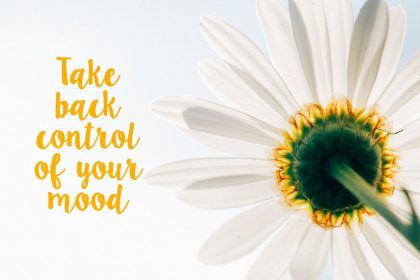Why it’s not you, it’s your hormones! And how to find a happy balance
We’ve published a few features now on our hormones, and how we can care for ourselves and work around them. And we firmly believe that much of our health, including how we feel, is within our control.
So we were delighted to read Nicki William’s common sense approach to hormones and ageing in her book It’s Not You, It’s Your Hormones.
Find out what inspired Nicki to write the book, why our hormones are so important, and how we can keep ours in better balance.
What inspired you to write the book?
I had been working 1-1 with clients for over a year and getting great results, but realised I needed a way to reach more women than I could with my time one on one.
So I decided to write the book so that more women could get the same information and tools that I was using with private clients at a fraction of the cost of working with me directly.
How important are our hormones in every day life – not just our ‘time of the month’ moods?
Before I knew about hormones I just thought they were about puberty, pregnancy, menopause and feeling cranky once a month! But I soon realised that they were so much more than that. They are essentially our cell’s communication system, chemical messengers that literally control how we look, feel, think and behave.
What is a sign they may be out of balance?
There are multiple symptoms that can signal your balance is off, but common signs are fatigue, stubborn weight gain, mood swings, low libido, depression, poor sleep, PMS, painful or heavy periods, brain fog, memory loss, feeling stressed or anxious, cravings, hair loss, dry itchy skin, brittle nails and feeling cold.
Why do hormones matter more when we’re over 40?
Hormones start to change around the age of 35, very gradually so you don’t often notice the symptoms until you’re in your 40s.
Sex hormones oestrogen and progesterone start to decline as your ovarian reserve reduces, your stress resilience tends to go down as your adrenals struggle to cope with life’s demands, thyroid can suffer as you get older and insulin can put you in to fat storing mode depending on your diet and stress levels.
These are the four main hormones that I look at with women over 40 as they tend to be the ones out of balance.
Are menopausal side-effects like hot flushes inevitable? Or are there things we can do to minimise them?
No! Hot flushes and night sweats are usually due to low levels of oestrogen, but they can be triggered by dietary, lifestyle or environmental factors (eg stress, alcohol, caffeine or chemicals).
There are lots of natural remedies to reduce hot flushes, including avoidance of common triggers, supplements and/or HRT (synthetic or naturally derived).
How important is diet in keeping our hormones balanced?
Diet is number one for hormone balance! Food is not just a bundle of calories. It is information. It tells your body what to do. So it’s important to be eating the nutrients that support your hormones to work for you rather than against you.
Keeping your blood sugar stable is hugely important as this keeps energy levels high, reduces fat stores and balances your mood. Reducing dietary stressors (eg sugar, processed foods, bad fats, alcohol) can help to balance cortisol. Eating enough protein and healthy fats helps your hormones do their job.
And certain nutrients help support each of your main four hormones, so it’s important to know what they are and how to find them.
What benefits have you personally seen from keeping your hormones balanced?
In my early 40’s I hit a wall. I had two young children and a busy job. I was exhausted all the time just juggling everything. I had a tyre around my middle that I couldn’t shift with the usual fad diets, and I was really grumpy to be around.
I had no idea it was anything to do with my hormones, I felt I was too young! When I got tested though it turned out all my main four hormones were out of balance!
When I changed my diet and lifestyle to support my hormones, the results were amazing. I was back to my old self in a matter of weeks. I was so impressed that I went back to college to study nutrition and hormones, and now I’m helping women all over the world to get the same results.

When should we seek help?
If you’re not feeling yourself, you’re tired of being tired, your mood swings are affecting your relationships, your brain fog is affecting your work, you don’t sleep well. Or you can’t shift that stubborn weight no matter what you try.
Anything that stops you being your absolute best, get help. It’s not something you have to put up with!
What are five things we can all do to keep our hormones happy?
1) Ditch the sugar
Sugar causes havoc to our hormone system. It can raise our insulin levels, which can lead to diabetes if prolonged. Insulin is also our fat storing hormone, putting any excess sugar into our fat stores. Its not just sugar we need to be wary of. White flour products break down into sugar very quickly in our digestive system.
Try swapping white carbs to whole grains, avoid processed foods with added sugars, and swap white sugar for natural alternatives such as xylitol, coconut sugar or raw honey
2) Eat fat!
Fat is needed for hormone production and storage, absorption of fat soluble vitamins (A,C,E,D) and helps keep blood sugar stable, filling you up so you are not hungry between meals. The obsession with low fat diets has really increased our risk of hormone issues. Women are slowly realising that fat is good for us and we don’t do well on low fat regimes.
Add these healthy fats to your diet; coconut oil, olive oil, grass fed butter (Kerrygold), avocado, nuts, seeds, oily fish. In addition, flaxseeds are really helpful for PMS and menopausal symptoms.
3) Breathe
Cortisol, our stress hormone, is extremely disruptive to our hormone balance, and is what contributes to our expanding middles!
While we might not be able to control or remove many of the stresses in our lives, we can certainly change our reactions to them. And we can incorporate some down time, even if it’s just for a few minutes a day.When cortisol is raised, we tend to take shorter breaths. This reduces the amount of oxygen we take in and prolongs the stress response.
Try doing 10 deep belly breaths every morning and before you go to bed. This helps to reset your stress hormones and also oxygenate your system.
4) Go organic
Pesticides and fertilisers used to grow non-organic fruit and veg are now known to cause hormone disruption.
Switch to organic fruit and vegetables are free of chemicals, and contain lots more nutrients. Organic dairy and meat are much healthier choices too –they are mostly from free range animals that are fed a natural diet and are free of hormones and antibiotics.
5) Eat your broccoli
Cruciferous vegetables (such as broccoli, cauliflower, cabbage, sprouts, kale, rocket, watercress) have a special compound called DIM, which can help to detoxify excess oestrogen in the body.
If your liver has a lot of toxins to deal with, things can back up and you could have excess oestrogen recirculated into your system. This can lead to ‘oestrogen dominance’ and symptoms include PMS, fibroids, breast tenderness and increased risk of cancer.
Try adding cruciferous vegetables to every meal (maybe not breakfast!). Make sure you cook them first if you have any thyroid issues as they can be goitrogenic.
You can read ore practical advice to keep your hormones in balance (and even find which ones you need to boost in particular) in Nicki’s book. You can also contact Nicki for a free discovery call.










